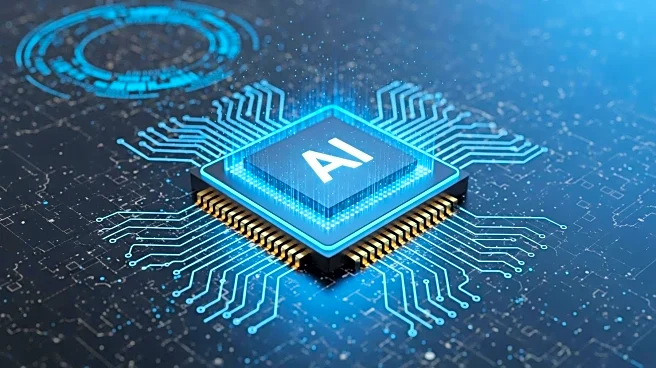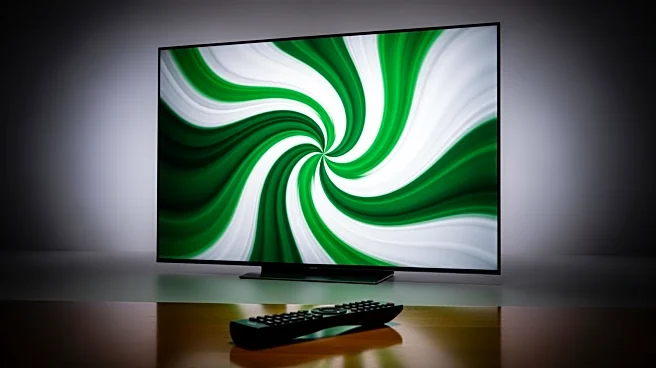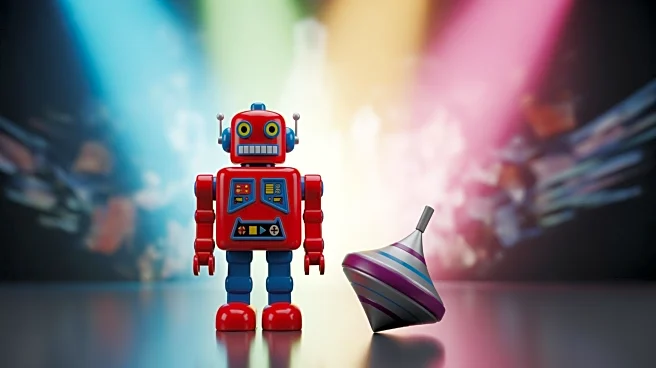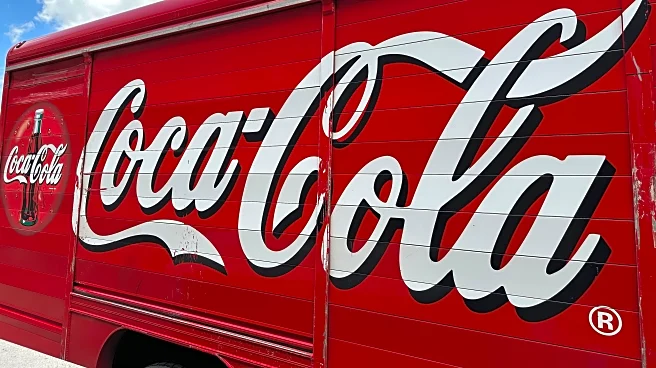What's Happening?
Nvidia CEO Jensen Huang has expressed a contrasting view to Elon Musk's prediction of a future where humans benefit from increased leisure time due to AI and robotics. Speaking on Fox Business, Huang suggested that advancements in AI and robotics will lead to humans being busier than ever. He highlighted the widespread integration of robotic systems across various sectors, including healthcare, manufacturing, and agriculture. Huang emphasized that while productivity gains are expected, humans will have more work due to the acceleration of tasks and the generation of new ideas. He acknowledged the potential for a shorter workweek but maintained that the future will involve more work opportunities and changes in job roles due to AI.
Why It's Important?
The implications of Huang's predictions are significant for the U.S. economy and workforce. As AI and robotics become more integrated into industries, there could be a shift in job roles, with some positions becoming obsolete while new ones are created. This transition may require workers to adapt and acquire new skills, impacting education and training programs. Additionally, the potential increase in productivity could drive economic growth, but it may also lead to societal changes, such as the reevaluation of work-life balance and the structure of the workweek. Companies and policymakers will need to address these changes to ensure a smooth transition and maximize the benefits of technological advancements.
What's Next?
As AI continues to evolve, businesses and industries will likely increase their reliance on robotic systems, prompting further discussions on the future of work. Policymakers may explore the feasibility of a four-day workweek and other measures to balance productivity gains with quality of life improvements. Companies might invest in reskilling programs to prepare their workforce for new roles created by AI. The ongoing development of AI technology will also require careful consideration of ethical and regulatory frameworks to address potential challenges and ensure responsible use.
Beyond the Headlines
The integration of AI and robotics raises ethical and cultural questions about the future of human labor and societal values. As machines take on more tasks, there may be debates about the role of humans in the workforce and the preservation of human-centric jobs. Additionally, the shift towards automation could influence cultural perceptions of work and leisure, prompting discussions on the value of human creativity and interaction in an increasingly automated world.










